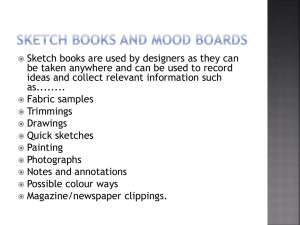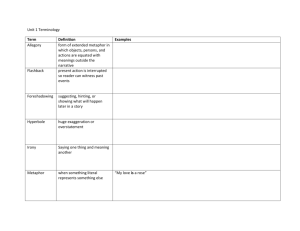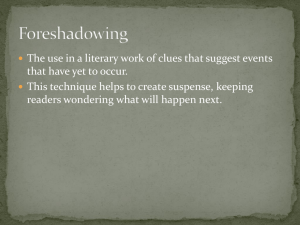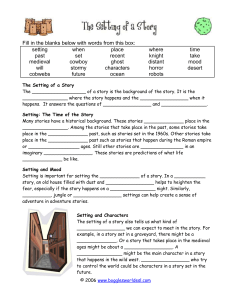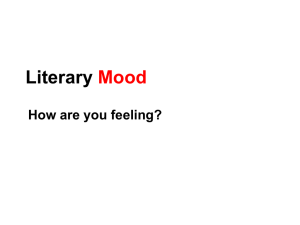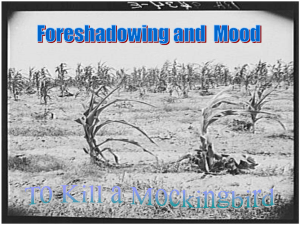ENG102 Peer Review - marshall102115fall2010
advertisement
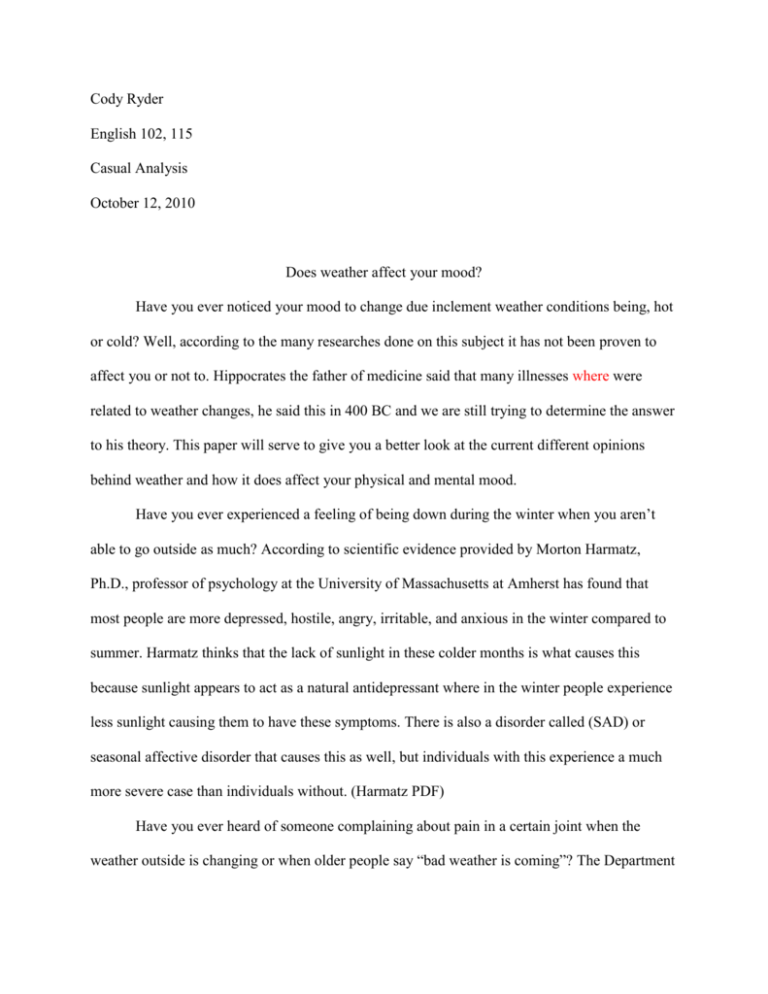
Cody Ryder English 102, 115 Casual Analysis October 12, 2010 Does weather affect your mood? Have you ever noticed your mood to change due inclement weather conditions being, hot or cold? Well, according to the many researches done on this subject it has not been proven to affect you or not to. Hippocrates the father of medicine said that many illnesses where were related to weather changes, he said this in 400 BC and we are still trying to determine the answer to his theory. This paper will serve to give you a better look at the current different opinions behind weather and how it does affect your physical and mental mood. Have you ever experienced a feeling of being down during the winter when you aren’t able to go outside as much? According to scientific evidence provided by Morton Harmatz, Ph.D., professor of psychology at the University of Massachusetts at Amherst has found that most people are more depressed, hostile, angry, irritable, and anxious in the winter compared to summer. Harmatz thinks that the lack of sunlight in these colder months is what causes this because sunlight appears to act as a natural antidepressant where in the winter people experience less sunlight causing them to have these symptoms. There is also a disorder called (SAD) or seasonal affective disorder that causes this as well, but individuals with this experience a much more severe case than individuals without. (Harmatz PDF) Have you ever heard of someone complaining about pain in a certain joint when the weather outside is changing or when older people say “bad weather is coming”? The Department of Rheumatology at Middlemore Hospital and the National Institute of Water and Atmospheric Research in New Zealand conducted studies to determine if this was true or not. Sarcastically the Asian symbol for rheumatism is Fong shi which is literally translated as ‘wind’ and ‘wet’, which applies directly to this concept of weather affecting people’s pain levels in changing weather. According to this study seventy-four percent of the patients said weather does affect them in some shape or form. Out of the seventy-four percent that said yes, weather does affect their pain level seventy-two percent said that they experience the most pain during cold conditions followed closely by sixty-five percent during damp/rainy conditions. Also, out of the original seventy-four percent that said yes eighty-two percent said that during the winter the pain is the worst. (Rheumatology) A study conducted by Kingston University and King’s College Hospital has shown that people suffering from sickle cell disease (SCD) tend to experience more acute, severe pain during high wind and low humidity with no direct relation between seasons. (SCD) Do you ever get headaches specifically migraines during changing weather conditions? Many studies have been conducted to determine if they had any relation with mixed results it cannot be proven or disproven. But, the study conducted by Patricia B. Prince, MD along with others has found that people are actually sensitive to weather. They determined that fifty percent of the subjects in the study had a direct correlation to weather. Along with this number sixty-two percent thought they were sensitive to weather conditions. This shows that patients are influenced by weather variables, but it also proved that many of the people that believe they are affected by weather actually are not. (Headache) A study conducted by E. Howarth and M.S. Hoffman found that ten mood variables were related to eight weather variables in a multidimensional study. The mood variables were: concentration, cooperation, anxiety, potency, aggression, depression, sleepiness, skepticism, control, and optimism. The weather variables were as follows: hours of sunshine, precipitation, temperature, wind direction, wind velocity, humidity, change in barometric pressure, and absolute barometric pressure. Out of the weather variables associated humidity, temperature, and hours of sunshine had the greatest effect on mood. High levels of humidity reported to lower scores on concentration while increasing sleepiness reports. With the raising of temperature anxiety and skepticism reportedly lowered. Humidity was the biggest impact on mood in this study and it was seen to directly affect performance at the office or at school. (Multidimensional) Do you think you have a better memory when you are in a good mood or a bad mood? Joseph P. Forgas along with colleagues from University of New South Wales, School of Psychology have found that people tend to have a better memory when they are in a bad mood. They tested shoppers on bright sunny days which they related to people have good moods and rainy cloudy days they related to have bad moods. This further proves the previous sections of text and their credibility. Forgas found that on days when people had bad moods they showed better memory and higher discrimination ability compared to days in which they had good moods. (Can bad weather increase memory) Have you ever heard the old saying “Your blood gets thicker in the winter”? Well, it does. This causes much more stress to be put on the body due to blood pressure rising, cholesterol increasing, and you are at a higher risk of heart attack or stroke when the weather is very cold. On the opposite side of the spectrum intense heat has effects on our mental health. Everything from aggression to higher rates of suicide is directly affected by the heat. According to Pat Thomas the season that tends to be the worst is winter. “In terms of death very cold winters tend to be the worst, because they produce the highest death rate.” Also in the winter colds and the flu seem to be flamboyant. Therefore making winter the “hardest on vulnerable people.” Thomas says that “weather has the most impact on anyone in changeable weather.” Changeable weather being right before or storm, or when the wind kicks up, or a hurricane, this is when weather affects us most because we are slow to adapt. Thomas states that extreme weather stresses us out and the changes can be difficult for some people. She says that “research done in very dark places like Scandinavia show a much higher rate of suicide and depression. Without this sunlight we are deprived of vitamin D and we need it to stabilize our personalities.” (Thomas) “Sunny and happy. Cold and uncomfortable.” This is how sixteen year old Pete S. out of San Antonio, Texas feels about weather. He hates having to be inside on cold overcast days, “It makes him feel kind of claustrophobic.” According to Marti Erickson, founding board member of Children & Nature Network, weather can make Pete feel this way, in fact Erickson says “Weather really does affect us; it affects our energy, and it can affect our mood.” A recent study found that “spending at least thirty minutes outside in warm sunny weather can increase mood and give someone’s mind a boost.” But, while “heat and humidity go up, a person’s mood goes down.” According to a study by Matthew C. Keller and others mood is directly influenced by weather. In their results they found that they directly correlated to seasonal affective disorder (SAD). They found that people have a “higher mood, better memory, and broadened cognitive style” in pleasant weather. Pleasant weather being related to spring time and this meaning more time spent outside. They found that hotter weather associated with summer actually decreased mood. (Keller) Dr. Nina S. Evans says that weather affecting mood is completely psychological, although there is a seldom case in which there is a physical reason for depression or weariness due to weather conditions. In the small amount that has a real physical reaction to the weather it is related to an absence in sunlight. Evans only applies this theory to winter. (WESTCHESTER) Bibliography

